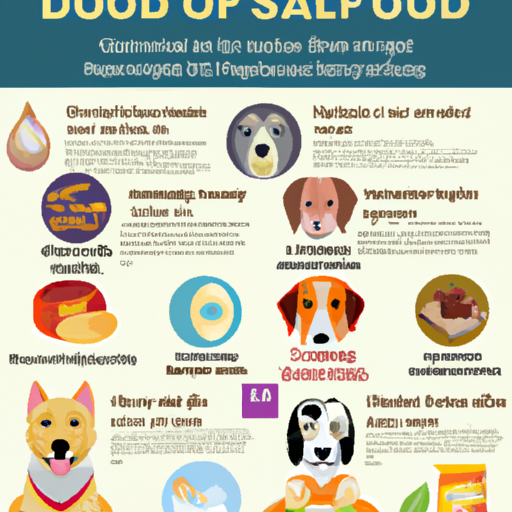As a caregiver, you’ve probably wondered whether the foods you enjoy are safe to share with your furry friend. It’s important to ensure that whatever food you give to your dog is not only safe but also beneficial to their health. Let’s delve into the topic and explore the different types of human foods that are safe for dogs.
Fruits and Veggies
Most fruits and vegetables are safe for dogs to eat and can provide a healthy boost of vitamins and minerals. However, it’s crucial to only give them in moderation. Here are some fruits and veggies that are safe for dogs:
- Apples: They are a great source of vitamins A and C, as well as fiber. Make sure to remove the seeds and core before giving them to your dog.
- Bananas: They are high in potassium, vitamins, biotin, and fiber. However, they also contain sugar, so give them in moderation.
- Broccoli: It’s high in fiber and vitamin C but should be given in moderation as it could cause digestive issues if given in large amounts.
- Carrots: They are low in calories and high in fiber and vitamin A. They are also good for a dog’s teeth.
| Fruit/Vegetable | Benefits | Precautions |
|---|---|---|
| Apples | Vitamins A and C, Fiber | Remove seeds and core |
| Bananas | Potassium, Vitamins, Biotin, Fiber | High sugar content, give in moderation |
| Broccoli | Fiber, Vitamin C | Could cause digestive issues if given in large amounts |
| Carrots | Low in calories, High in fiber and vitamin A | Good for dog’s teeth |
Dairy Products
Some dogs are lactose intolerant, which means dairy products can cause them digestive upset. However, if your dog can tolerate dairy, these products can be a good source of protein.
- Cheese: It’s a great treat for a dog, as long as your dog isn’t lactose intolerant. However, avoid giving them cheese with high fat content.
- Yogurt: Plain yogurt is a good source of calcium and protein. But make sure it doesn’t contain any added sugars or sweeteners.
Protein Foods
Lean proteins are a vital part of a balanced diet for dogs. They provide essential amino acids that help with muscle development and energy levels.
- Chicken: It provides omega 6 fatty acids that are good for a dog’s skin and coat. It’s also a great source of protein.
- Fish: Salmon and tuna are rich in omega-3 fatty acids, which are good for a dog’s coat and boost their immune system. But make sure to cook the fish thoroughly and remove any bones.
Grains
Whole grains like rice and oats are good sources of fiber and can help your dog feel fuller for longer. However, avoid giving your dog any food that may contain harmful additives.
- Rice: It’s easy on a dog’s digestive system and is a good source of energy. Brown rice is preferred over white.
- Oats: They are a great source of soluble fiber, which can be especially beneficial for older dogs with bowel irregularity issues.
Foods to Avoid
Some foods that are safe for human consumption can be harmful or even deadly for dogs. Here are a few to avoid:
- Chocolate: It contains theobromine, which is toxic to dogs.
- Onions and Garlic: They can kill red blood cells in dogs, leading to anemia.
- Caffeine: It can lead to restlessness, rapid breathing, heart palpitations, muscle tremors, and seizures.
- Grapes and Raisins: They can cause kidney failure in dogs.
How to Introduce New Foods?
When introducing new foods to your dog, it’s important to do so gradually. Start by giving them a small amount and monitor for any adverse reactions such as diarrhea or vomiting. If they seem to tolerate the food well, you can gradually increase the amount.
FAQ
Q: Can I feed my dog a vegetarian or vegan diet?
A: Dogs can technically survive on a carefully balanced vegetarian or vegan diet. However, they have evolved as carnivores, so such a diet may not be optimal. Always consult with a vet before making major changes to your dog’s diet.
Q: Is it okay to feed my dog raw meat?
A: Feeding dogs a raw diet is a controversial topic. While some believe it’s the most natural diet for dogs, others argue that it can expose dogs to harmful bacteria and parasites. Always consult with a vet before starting your dog on a raw diet.
Q: Are nuts safe for dogs?
A: Some nuts, like peanuts and cashews, are safe for dogs to eat in small amounts. However, others, like macadamia nuts, are toxic. As a rule, you should avoid giving nuts to your dog due to their high-fat content and potential choking hazard.
By providing your dog with a varied diet that includes safe human foods, you can ensure they’re getting all the nutrients they need to live a long, healthy life. Always remember to consult with a vet before introducing new foods into your dog’s diet.



